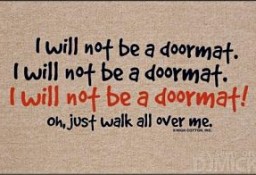Do you get this feeling?…It’s a beautiful day and I know I should go for a walk in order to stay fit…but I don’t really want to.
I don’t know about you but staying fit is just not enough motivation to get me out for a walk. However, I am looking forward to playing basketball tomorrow—I do it because it’s fun and not because I want to stay fit.
Do you get the same feeling when it comes to your job? It’s another weekday and you know you should get out of bed to make some money and pay your bills…but you don’t really want to. Paying your bills is just not enough motivation to get you going.
You’re not alone. Up to 70% of us report feeling dis-engaged from our jobs, work, or employers. And one of the reasons that we feel that way is because our jobs do not motivate us intrinsically, that is inside us as opposed to working only for extrinsic rewards (like money).
Intrinsic Motivation
Research clearly shows that you’re more likely to enjoy job satisfaction if you focus on the work itself, and less likely to enjoy it if you’re focused on money. This finding holds true even at low salary levels. This means that employees who are intrinsically motivated are three times more engaged than employees who are extrinsically motivated (such as by money).
Intrinsic motivation is not only a better indicator of job satisfaction but also job performance. The more people focus on their salaries, the less they focus on satisfying their intellectual curiosity, learning new skills, or having fun, and those are the very things that make people perform best.
However, it is difficult to cultivate higher job satisfaction and better job performance if we don’t know our motivational pattern. I have written elsewhere about the key success factors that make up our motivational pattern. I call them rocket launchers. When are natural talents, inclinations and skills align with the tasks we’re given at work, then are job satisfaction and performance work together to produce amazing results!
Motivational Pattern
Each of us can learn what launches us into a state of flow that integrates with certain tasks at work. When we are clear about the positive intrinsic aspects of such work, the research shows that we enjoy our work more than if we are just focused on the extrinsic rewards of performing such tasks. What is it we most enjoy doing and do best when it comes to our work? My JobJoy Report is an evidence-based approach to giving individuals the answer to this question with clarity and confidence. If we can’t answer this question, we default to focusing on extrinsic rewards.
While studies show consistently that most people are, in fact, more intrinsically motivated, they still tend to choose a raise over more meaningful work. They might want more interesting work but feel they can’t get it from their current job, or career, or employer, so they go for the money. As negative work experiences pile up, individuals tune out, settle for a paycheck and report feeling dis-engaged from their work.
Now, a sceptic might say that such reseach simply reflects an innate mindset — some people happen to be more focused on extrinsic rewards, while others are more focused on the task itself. That’s certainly possible because it’s hard to test for such a distinction. Similarly, a cynic might say that people who focus too much on money are preventing themselves from enjoying their jobs. That’s possible too…we don’t know for sure.
What we do know is that there is little evidence to show that money motivates us, and a great deal of evidence to suggest that it actually demotivates us. Of course, that doesn’t mean that we should work for free. We all need to pay our bills and provide for our families — but once these basic needs are covered the psychological benefits of money are questionable.
Working only for wages
The meaning of money is largely subjective. For example, there are marked individual differences in people’s tendency to think or worry about money, and different people value money for different reasons (e.g., as a means to power, freedom, security, or love). Our relationship to money is highly idiosyncratic.
Some research shows that employees’ personalities are much better predictors of engagement than their salaries. The more emotionally stable, extraverted, agreeable or conscientious people are, the more they tend to like their jobs (irrespective of their salaries). But, an even more important determinant of an employee’s engagement at work is the personality of their boss. In fact, the biggest organizational cause of disengagement is incompetent leadership.
How we relate to others, especially our superiors, is a part of our motivational pattern. When we know what motivates us intrinsically, when we can communicate to our bosses and others how we work best, then we have a better chance of achieving job satisfaction.
If you are feeling dis-engaged from work…if you want work that taps in to your motivational pattern…if you want to make a social impact…if you want your personal goals/values to align with your work…if you want a sense of personal accomplishment…then let’s discuss how you can get engaged with your job quickly and easily.











